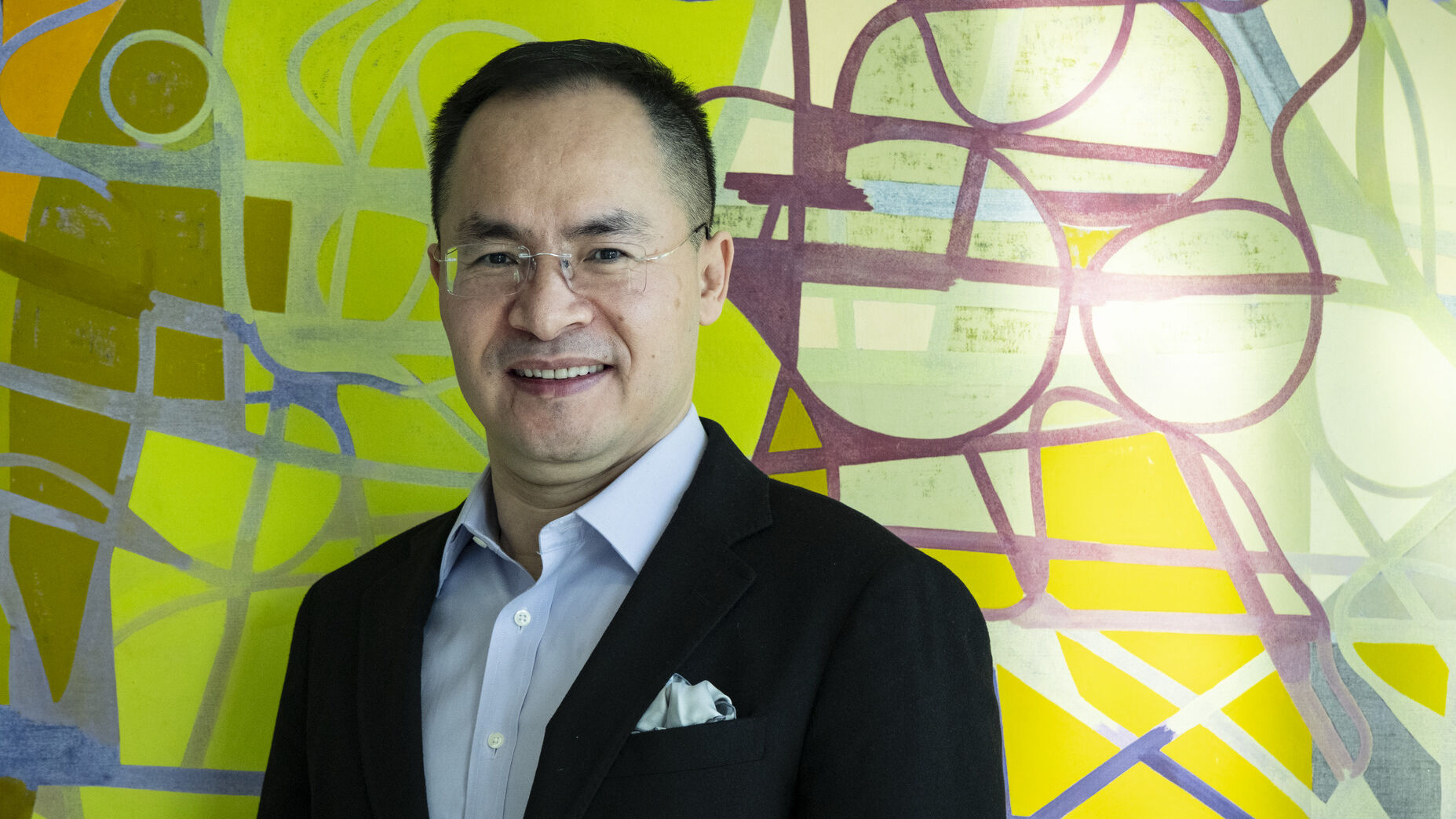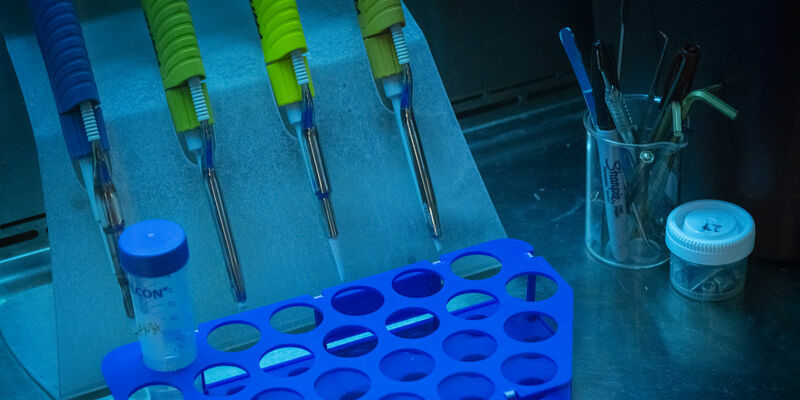AI won’t take your job; it will make you better at it
New research from Fox faculty Xueming Luo finds that AI can enhance creativity and job satisfaction, particularly for highly skilled workers, by taking on repetitive tasks and allowing employees to focus on more meaningful work.

As AI advances and becomes more common in everyday life, employees in nearly every industry grow fearful that the technology will come for their job. But research from Temple University provides hope that AI may not replace human workers anytime soon, but rather could help employees be more creative and happier at work.
New research from Xueming Luo, Charles Gilliland Distinguished Chair Professor of Marketing in the Fox School of Business, found that AI can enhance employee creativity, particularly among higher-skilled employees. It also found that AI collaboration can help higher-skilled employees develop positive emotions in the workplace.
“A lot of the research that’s been done is about AI replacing human workers,” said Luo, who is an expert in artificial intelligence, social responsibility with machine learning and big data. “But I think there will be a paradigm shift as companies realize that AI improves productivity, but it also helps humans have better performance and creativity as well.”
Luo is co-author of the scholarly research paper “When and How Artificial Intelligence Augments Employee Creativity” published in the Academy of Management Journal. He and his co-authors partnered with a call center company that conducts cold calls to try to get customers to sign up for a credit card. The researchers analyzed data from 3,200 customer calls handled by 40 employees—half of whom collaborated with AI.
In the AI collaboration group, AI performed the initial cold call to gauge a customer’s interest in the credit card. If a customer showed interest, they were transferred to a human employee who would try to close the deal.
“If a customer gets a cold call, 90% of the time they’re going to say, ‘I’m not interested,’ because they don’t trust anybody in that situation,” Luo said. He explained that AI excels at repetitive, codifiable tasks, such as identifying interested customers. When AI referred qualified leads to human employees, those employees developed more creative solutions compared to their counterparts who didn’t use AI.
The study defined creativity as developing “useful and novel solutions to customer problems.” Its authors also conducted qualitative interviews with employees to explore why AI increased creativity.
“Employees thought that because AI can take up 90% of the boring part of the job, the rejection, that saved them mental time and energy and allowed them to preserve their bursts of creativity for solving harder problems as customers pushed back,” Luo said. “Without AI help, so much of the employees’ time was bogged down dealing with rejection.”
The study also divided employees into groups based on their skill level. It found that higher-skilled employees benefited even more from AI collaboration than their lower-skilled counterparts. Luo said this is because it requires skill to persuade customers to sign up for the product.
“The lower-skilled workers do feel like AI saves them time, but on the other hand those employees don’t have the ability to deal with the push back from customers,” he said.
The interviews uncovered another advantage of human-AI collaboration: AI assistance helped higher-skilled employees develop positive emotions at work.
“Humans are fundamentally interested in creative work,” Luo said. “We don’t want to do the boring, repetitive stuff. We want to focus on work that’s high-powered and requires a human to do. With AI collaboration you work less, but you work more powerfully and creatively. And your psychological wellbeing is better.”
Call centers aren’t the only industry where human-AI collaboration could thrive. Any job involving repetitive, codifiable tasks could benefit from AI assistance, Luo said. For example, HR departments at large companies like Walmart, which receive millions of job applications each year, can use AI to filter out unqualified candidates and route qualified ones to human managers.
Healthcare is another industry that’s primed for AI assistance.
“Many hospitals are experimenting with this. They’re using AI to check patients’ medical history and records,” Luo said. “AI can do that at scale and with no error or memory loss. It can then generate a summary of what’s happening and route the patient to the correct doctor for further examination.”
Luo even sees AI collaboration making its way into leadership roles in the near future. He believes managers will soon use AI assistance to handle the analytical, fact-based parts of their jobs, leaving the interpersonal and trust-building tasks to humans.
But again, AI won’t replace your boss any time soon.
“In a nutshell, the myth is that AI will literally destroy all human jobs. But we try to demonstrate that it is not this way,” Luo said. “I think industries are going to find a new equilibrium. They will look to see where AI fits the most, not that AI can do everything.”


